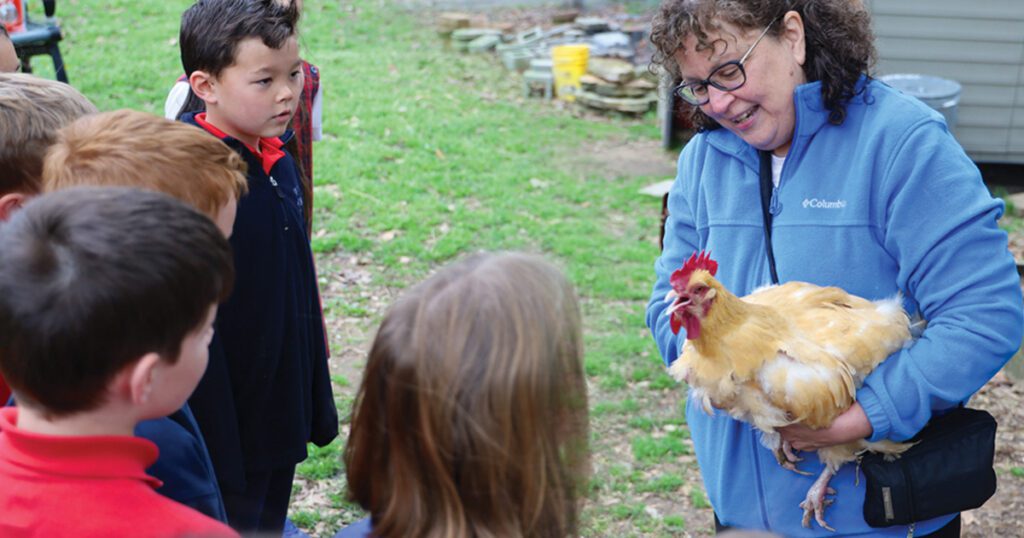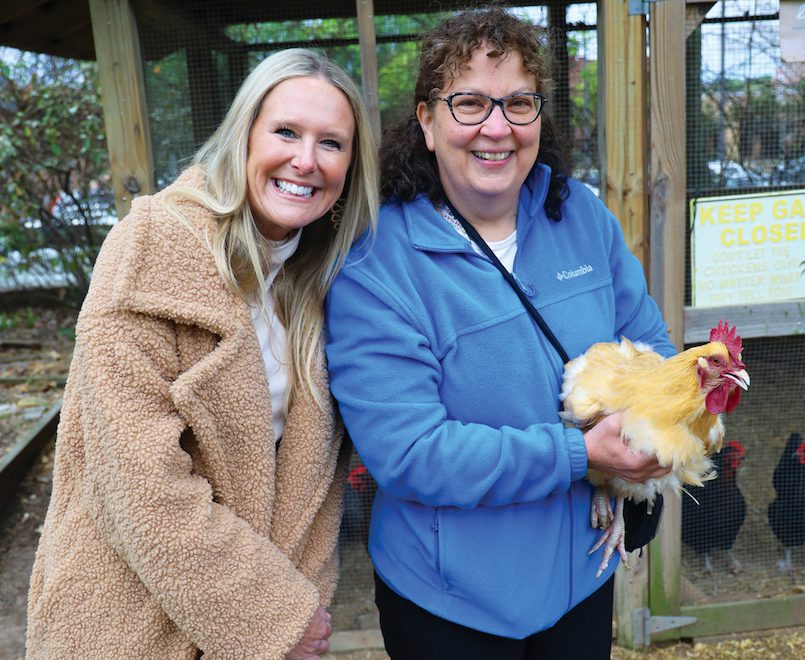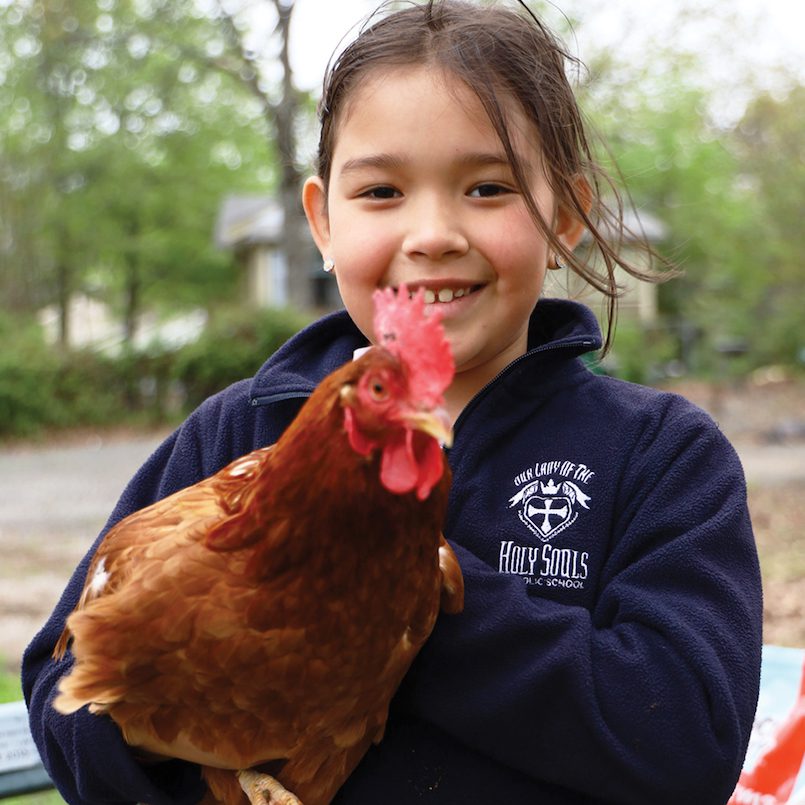02 May 2023 Chicken coop for the souls
Story and photos by Dwain Hebda
Like most houses of worship, Our Lady of the Holy Souls Church in Little Rock takes on the mood of the services being held on any given day.
At Easter, the sanctuary bursts with joy; at Christmas, sights and sounds commingle in hope; on Good Friday, the tone is suitably somber. Weddings, baptisms, funerals and ordinary weekday Mass all take their own tone here, translated through song and scripture handed down through thousands of years.
So you can imagine the faithful’s surprise eight years ago, upon emerging from the sanctuary and heading for their cars, at the sound of chickens clucking on a patch of church property next to the parking lot, set aside for gardening and reflection. Some congregants just continued on, refusing to believe their ears, while the more curious investigated and discovered Pinocchio, Clean Twitch, Janet Jackson, Red Runner, Pumpkin and Chick Norris, the founding fowl of Holy Souls School’s chicken flock.

Today, both students and parishioners are used to the sound of hens, as the flock has long ago been accepted as just another unique element of the church community.
“Some of the big things I love that it’s turned into is we use the coop almost like a composter,” said Principal Amber Bagby who started the flock eight years ago with her fourth-grade class. “A lot of our fresh vegetables and fresh fruits that are left over from the cafeteria, one of our classes will collect all that and walk it up to the chickens each day. They’re well-fed.
“I also think as a neighborhood, it’s become such a fun community. We have people who will come up and bring mealworms with them and feed them. It’s a great thing; it’s kind of taken on a life of its own.”
The original six hens are all but gone, with only the matronly Chick Norris still struttin’. Additional two-day-old chicks were ordered a while back to repopulate the coop, built by Bagby’s husband Marc and some other volunteers. The brood also grew post-COVID-19 when people who raised chickens as a pandemic hobby found them to be less-practical pets once they had to return to work.

Bagby said watching and tending the birds has given students a living classroom and a front-row seat to the cycle of life, the structure of community and one’s place in both.
“I think it teaches them to tend to the needs of something that’s vulnerable by giving them something that they can take care of and raise,” she said. “And introducing the new flocks, that’s always a really big process. We have to teach them there’s a pecking order and we talk about that a whole lot, even in the classroom.
“There’s a really good book called ‘The Pecking Order’ and it talks about a chicken that’s introduced to a new flock and how they just peck on him to establish that order. You read it to children to teach lessons about behavior on the playground when we have new students come. It’s a great teaching moment.”
The project is supported by two other teachers – Melissa Roberson and Tricia Finch – but the birds have a while ago stopped being the responsibility of just one grade or classroom. There’s too much to be learned in the caring of living things – about kindness, about responsibility and about life – to be contained by anything less than the entire school.

“I would love to see it become more of a structured program at some point. And I would love for it to almost sustain itself monetarily,” Bagby said. “I don’t think they would ever produce enough eggs for us to ever really do that, but I do think that it would be a fun idea just to get the community more involved and to bring more awareness to it.
“We do love the idea of outdoor classrooms and outdoor spaces. Teachers will do that to whatever extent they have a comfort level. We’ve got some that would be out there all day in raincoats if they could with their kids. And we have some that probably don’t love to get dirty, and that’s OK.”
As for growing the flock beyond its current 12 beaks, Bagby said she’s fine with the numbers where they are.
“I think a dozen [chickens] is about as big as we would want to get for them to be comfortable in their little mansion,” she said. “As it is, about once every other week we’ll get a call in the office about a runaway chicken, and if it is ours. When we check, it usually is.”
- Conway couple called to serve foster children, families - March 10, 2024
- Artist of the Month: Terri R. Taylor - November 5, 2023
- Everybody loves a nut - November 5, 2023











